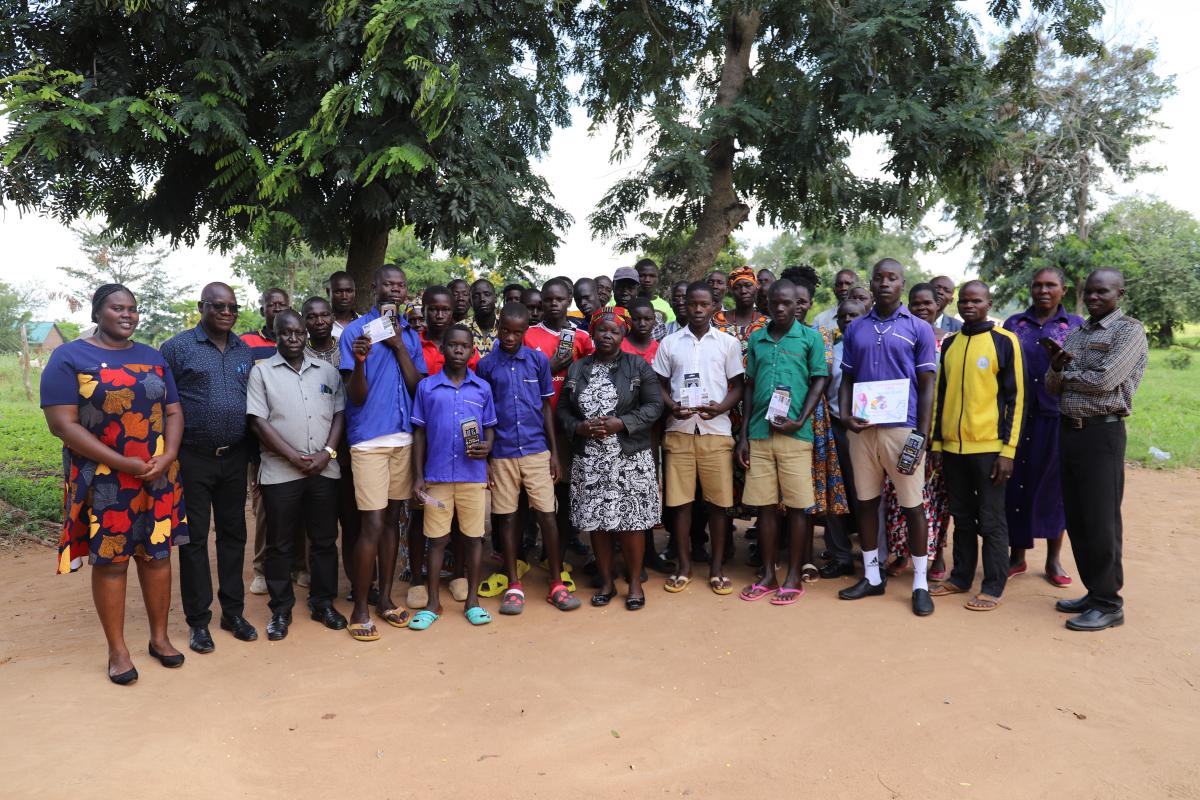Enabel in Uganda moves to champion secondary education for every child through the 'My School, My Friend' campaign.
Achieving equitable access to quality education for every child is a pressing challenge that demands immediate attention from everyone. In West Nile Uganda, the region is currently facing high rates of low enrolment in government-aided secondary schools, which reflects a deeper societal issue. With many families prioritizing the immediate economic contributions of their children over the long-term benefits of education, this short-sighted approach is not only undermining the future of children but also hampering the overall development of the community and the nation.
In response to this critical situation, Enabel, through its WeTeach project, launched the “My School, My Friend” initiative, aimed to foster community engagement and raise awareness about the transformative power of secondary education. By emphasizing the importance of education, the initiative seeks to shift perceptions and encourage families to invest in their children's futures.
Community leaders play a pivotal role in shaping attitudes and behaviours, and Enabel has positioned them as champions of education. These leaders are not only influential figures but also trusted voices within their communities. By engaging them in the outreach efforts, the project aims to create a ripple effect of positive change.
Mr. Ronald Ndungu principal education officer in charge of West Nile echoed these sentiments, urging parents to take an active interest in their children's education. He noted that Community engagement is a critical activity, and schools need to continue doing it to reawaken the minds of leaders to encourage parents to take children to school. “I encourage secondary schools to interact with primary schools and as well undertake projects that focus on sensitization regarding drug abuse and introduce computers to primary learners to foster innovation.”
Mr. Lawot Anthony, the District Education Officer in Kitgum and Mr. OVUA SHEM District inspector of schools in Madi-Okollo pointed out several socio-economic challenges contributing to low enrolment rates, including early marriages, teenage pregnancies, and high poverty levels. They both stressed the importance of awareness creation to combat these issues, saying,
"We need to host radio talk shows with leaders and engage in dialogue with community and clan leaders.This approach aims to foster a supportive environment for education and encourage families to prioritize schooling" says Mr. Lawot
The 'My School, My Friend' initiative is not merely about increasing enrollment; it seeks to change perceptions and build a culture of education.
According to Ms. Clare Atuhaire, the WeTeach project Coordinator in West Nile, the "My School, My Friend" campaign is designed as an action research initiative to tackle these challenges head-on. By organizing school-based meetings and awareness campaigns, the project seeks to engage parents and local leaders in meaningful dialogue about the importance of secondary education.
Mr. Okot Freddy, the headmaster of Omiya Anyima Seed Secondary School in Kitgum district, emphasized the effectiveness of community engagement, stating, "This initiative is effective, and when communities are engaged, the better." He also highlighted the urgent need for adequate teachers to support the growing demand for secondary education.
Ms. Latigi Mary a parent from Lopur primary school in Kitgum district expressed a powerful sentiment: “Education is the key to a better future for our children. We must work together to ensure they have every opportunity to succeed.”
This perspective summarizes the collective hope and determination of the community to uplift their children through education. As the communities’ rally towards this initiative, the question remains: Are we fully harnessing the potential of every child? The answer lies in our collective commitment to education, community engagement, and the belief that every child deserves the chance to excel.
Laatste nieuws van dit project
Geen nieuws

